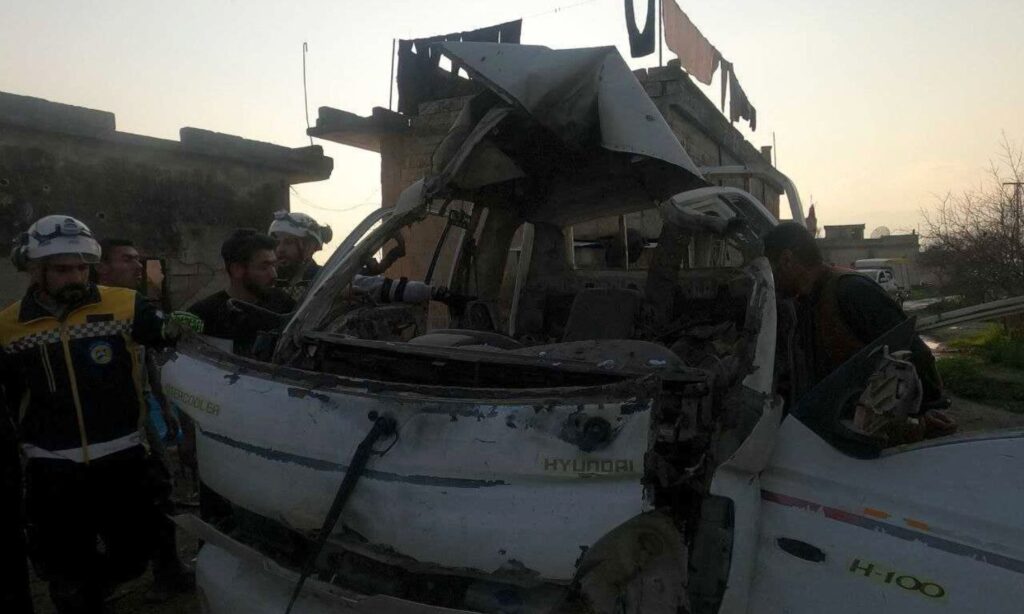The Syria Civil Defense teams have documented 13 attacks by suicide drones launched by the Syrian regime forces, Russia, and Iranian militias in the northwestern regions of Syria since the beginning of the current year until today, Thursday, February 22.
According to statistics obtained by Enab Baladi from the Syria Civil Defense, the regime’s forces and their allies carried out six suicide drone attacks today, out of 13 attacks. The rescue teams responded to the attacks targeting civilian environments, all of which resulted in the injury of seven civilians, including two children.
The six attacks were concentrated in the al-Ghab Plain area, one of the most fertile agricultural regions in Syria, cultivated with grains, especially wheat, the main food for the population in Syria. The area also has the Qarqur dam, frequented by civilians for fishing.
Since the beginning of the current year, the regime forces, Russia, and the Iranian militias have unprecedentedly escalated their attacks with suicide drones, in a new approach to targeting civilians in northwest Syria and threatening their lives.
The Syria Civil Defense considered these attacks as undermining the livelihood of the locals and preventing them from accessing and exploiting their agricultural land. This increases the destruction of food security factors in the region and prevents the population’s ability to secure their daily sustenance at a time when humanitarian response is declining, and any international community steps to stop these attacks are absent.
Since the beginning of the year until February 18, the Syria Civil Defense teams have responded to 138 attacks by regime forces and allied militias on northwestern Syria, including three attacks with missiles loaded with incendiary submunitions.
These attacks resulted in the death of ten people, including two children and a woman, and injured more than 60 others, including 17 children and five women.
Regime forces always target villages adjacent to the frontline in the Jabal al-Zawiya area, south of Idlib, where farmers must reach their lands and harvest their crops despite the risks.
The northwest region of Syria is subject to the Moscow agreement signed between Russia and Turkey, and military operations including battles and opening of military fronts have stopped since its signing on March 5, 2020.
Despite the agreement, the northern Syrian areas are subjected to near-daily shelling and raids by Russian aviation at an irregular pace, concurrent with Russian drones flying in the region’s skies daily.
In a scenario that has continued for 12 years within a systematic policy, the year 2024 began bloodily for northern Syria, with death looming over various neighborhoods in Idlib and the Aleppo countryside, amidst the variety of weapons used by regime forces to bombard the area, including internationally banned incendiary munitions.

